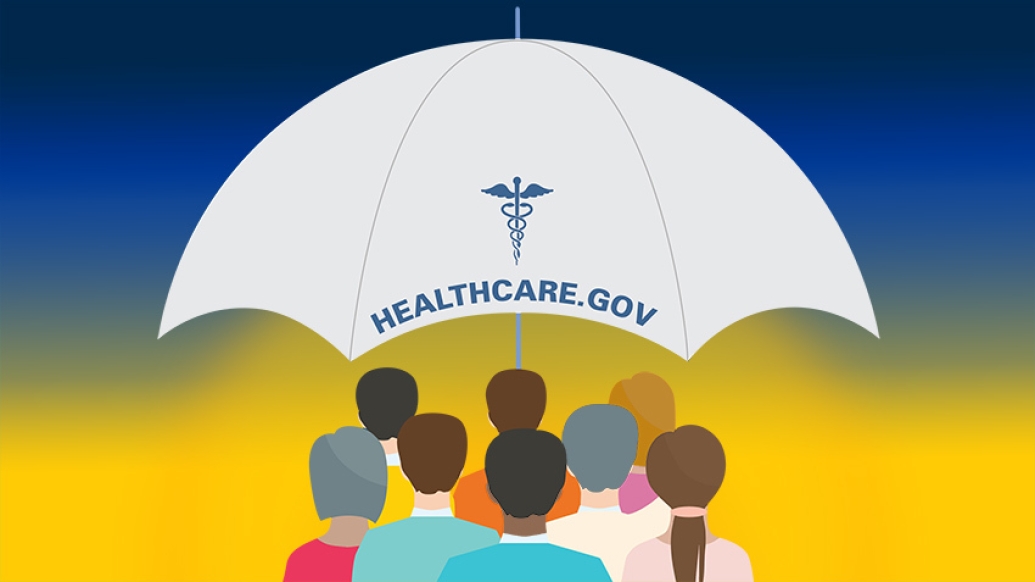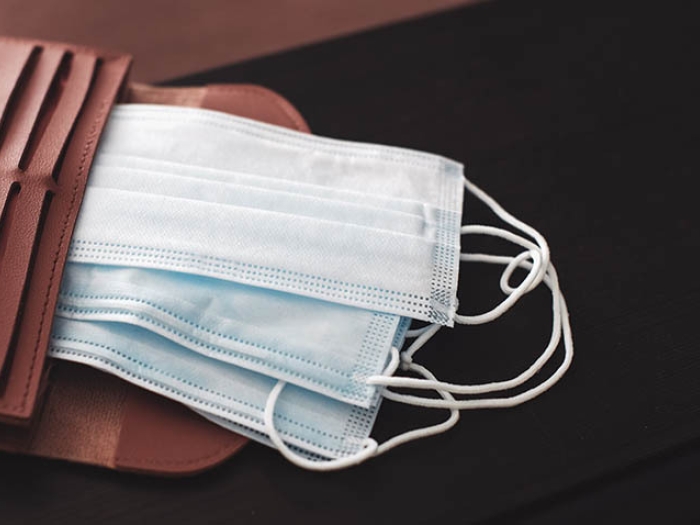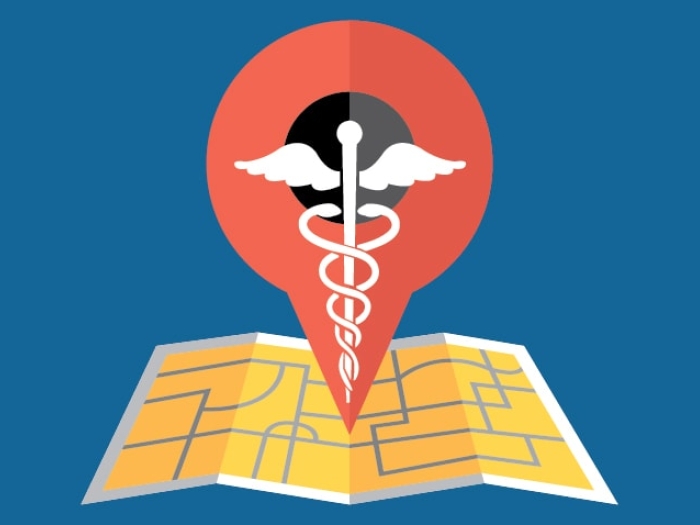If you don’t have it, you can get it sooner than you thought. And if you have a plan with a high deductible, new tools could help you plan ahead.
12:30 PM
Author |

Having health insurance is like having a good umbrella on a rainy day – or a good coat on a snowy one.
Even if life throws something at you that you didn't expect, or couldn't prevent, you're protected from the worst of the storm. And even if you don't need your umbrella or coat every day, it's better to have them handy, just in case.
This winter, two new events can help people who might lack a health insurance coat or umbrella right now, or who have one that lets some of the cold or rain through.
Both of these developments are good news for everyday people. But both require you to take action to get the benefit. Here's what's up:
No health insurance? Here's your chance to get it.
If you don't have health insurance right now, or you're worried you might lose it because of upcoming changes in your income or job, you're in luck.
Starting February 15, and continuing through mid-May, the federal government will open up the health insurance Marketplace at healthcare.gov to let more people buy their own health insurance coverage.
SEE ALSO: Study: Health Plan Deductibles Hit Patients with Chronic Illness Harder
Usually, most people only have a few weeks in the fall and early winter to pick a plan on healthcare.gov, where the Marketplace is located. And then that plan kicks in on January 1.
And usually, the only way you can get a chance to buy health insurance on the Marketplace after that Open Enrollment period is if you have a major life event, like losing a job, getting married or turning 26 and no longer being able to get insurance through your parents' plan.
But this year, because of the pandemic's lasting economic effects, the Marketplace will open up for insurance buying by anyone.
Think of it as a pop-up store that sells umbrellas and coats, and is usually only open for pre-Christmas shopping.
Now it's opening up for spring sales too.
MORE FROM MICHIGAN: Sign up for our weekly newsletter
"This is a perfect opportunity for those who missed the regular enrollment period to get an opportunity to re-evaluate the plans and get enrolled," says Alena Hill, who heads a team at Michigan Medicine that helps anyone find out their options and enroll in a Marketplace plan. "We are certainly prepared to assist patients with this."
Hill's team can be reached at 877-326-9155 between 8 a.m. and 5 p.m. ET Monday through Friday, or by email at [email protected].
Just like with the usual Open Enrollment, the price you pay for your umbrella or coat will depend on how much money you make.
You may even find out that if your income is very low, you'll qualify for the Medicaid program in your state, or for a Medicaid expansion program such as the Healthy Michigan Plan that already covers more than 874,000 Michiganders. This kind of coverage is actually open all year for enrollment by people who qualify.
U-M research has shown that the Healthy Michigan Plan has helped many low-income people improve their health and their ability to work.
New health care price estimates can help you know what to expect
Whether or not you already have health insurance, a new rule took effect on January 1 that could help you plan your health care spending.
As of January, hospitals and health systems are required by the federal government to offer information about what you should expect to pay out of your own pocket when you get services from them.
The "price transparency" rule, which was approved in 2019 and survived a last-minute court challenge in 2020, means that you should be able to find out the price of at least 300 different health care services from any hospital or health system in America, before you decide where to go for your health care.
You have to take matters into your own hands to make the most of it.Jeffrey Kullgren, M.D., M.S., M.P.H.
It's not a guaranteed price, because complications or other factors could affect the final cost. But it should be enough to help you compare prices between providers if you're making a choice, or plan ahead for the year.
Some health systems, like Michigan Medicine, offer two types of price estimate information: one for people who aren't yet patients, and one for people who are already patients and whose insurance plan is on file in their patient record. To get the latter kind of information, you need to log in to your patient account.
Like Podcasts? Add the Michigan Medicine News Break on iTunes, Google Podcast or anywhere you listen to podcasts.
The new rule is especially helpful if your health insurance plan has a deductible, which is an amount you're required to pay toward the health care you receive before your plan takes over and pays the rest.
"Many health insurance plans now have a deductible of a few hundred to a few thousand dollars, as employers and Marketplace plans ask people to shoulder more of their own health care costs," says Jeffrey Kullgren, M.D., M.S., M.P.H., a primary care physician and researcher at Michigan Medicine and the VA Ann Arbor Healthcare System who studies how people make choices regarding health care costs. "So it's especially important for people with these plans to have access to potential out-of-pocket costs ahead of time. But that access is only valuable if people know they have it, and use it."
Kullgren explains that the new rule could make navigating health plan deductibles more like navigating car insurance deductibles, which most people who own cars are familiar with. If your windshield cracks or you have a minor fender bender, you're responsible for paying to fix the damage, up to the deductible amount.
So if you need minor repairs, you might get estimates from several repair shops before deciding which one to use. Or you might decide to ride around with a dented bumper or cracked windshield until you've saved enough money to fix it, and hope that you won't get a ticket or that your bumper won't fall off.
Of course when there's a medical emergency, "shopping around" doesn't make any sense, and could even get in the way of needed care. But when there is time to shop, big differences in prices for comparable health care services can translate into big savings.
With health care, the deductible resets every year, so in January you know you will be responsible for paying for the first $500, $1,000 or more that your health care costs, except for certain preventive services that don't cost you anything out of your own pocket thanks to the Affordable Care Act.
But if your health plan has a high-enough deductible, you are also eligible for another benefit: a special kind of health savings account that you can put money into tax-free, and that rolls over from year to year (this is different from the flexible spending accounts that some employers offer, which have to be emptied each year.)
SEE ALSO: Many Medical "Rainy Day" Accounts Aren't Getting Opened or Filled, Study Finds
Kullgren's research shows that a lot of Americans who could open or use these accounts don't actually do so. He also did research several years ago about the way people used price information that was available then, before the new requirement took effect – and found that many people weren't using it.
So if you know you may need a certain health care service this year, Kullgren advises checking the prices on several hospital websites and trying to open a health savings account at a bank or credit union that offers them. Start saving now toward the estimated amount that you will pay.
"The new law about price transparency, the availability of HSAs, and other tools that your employer or health system may offer, can help you plan ahead and avoid a financial pinch," Kullgren says. "But you have to take matters into your own hands to make the most of it."

Explore a variety of healthcare news & stories by visiting the Health Lab home page for more articles.

Department of Communication at Michigan Medicine
Want top health & research news weekly? Sign up for Health Lab’s newsletters today!





